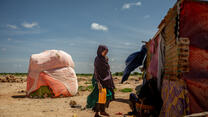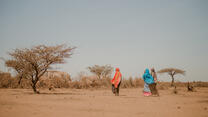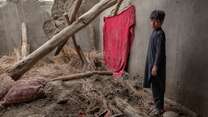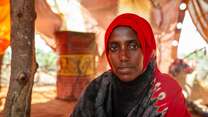The three global challenges of climate change, poverty and conflict are converging to form a new epicenter of crisis in just 17 countries. Despite the urgency of need, effective approaches to prepare for, respond to and recover from disasters are absent within the most climate-vulnerable and conflict-affected communities. This gap leads to increased community vulnerability, promotes a cycle of environmental degradation, poverty and conflict and perpetuates and exacerbates an already dire situation. These communities contribute the least to climate change, bear its worst impacts and have been excluded from conventional climate action strategies, which tend to focus on more stable settings.
The Airbel Impact Lab, IRC’s Research & Innovation Unit, and IRC’s Afghanistan and Somalia Country Teams, in coordination with farmers and local stakeholders, are currently conducting exploratory human-centered design research as a first step to generate, test, and scale Disaster Risk Reduction (DRR) solutions for agro-pastoral communities across the epicenter of crisis. The aim of this research is to integrate local, indigenous and traditional knowledge (LITK) with emerging technology to promote holistic and adaptable DRR solutions that span preparation, response and recovery under dynamic climatic and conflict conditions.
In this case study, we describe the root causes of the problem we aim to address at both a global and national levels in Afghanistan and Somalia, our strategic and human centered process to generate solutions and preview a bank of early solution ideas emerging from this work which we will continue to refine and expand in the year ahead. Finally, we put forward a series of recommendations for funders and policymakers to unlock urgently needed funding and ensure communities at the epicenter of crisis have the resources they need for effective adaptation and resilience building.



